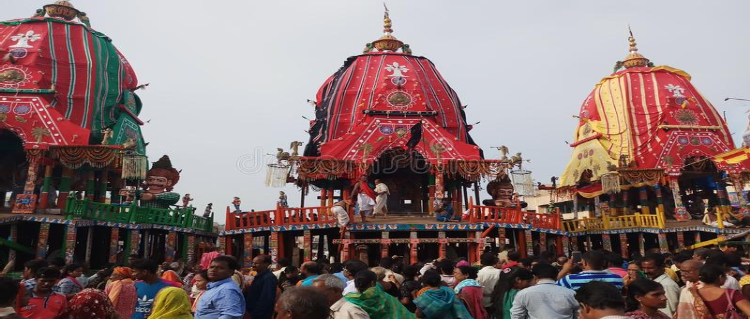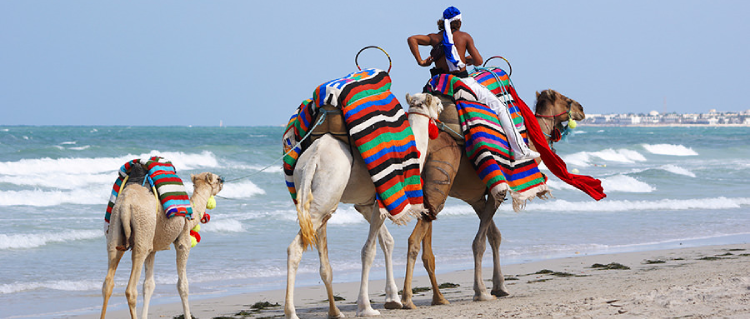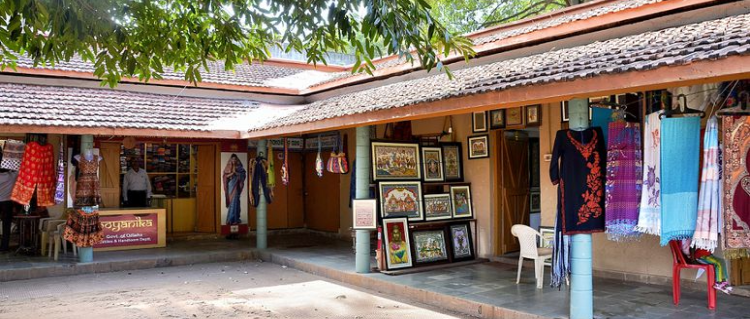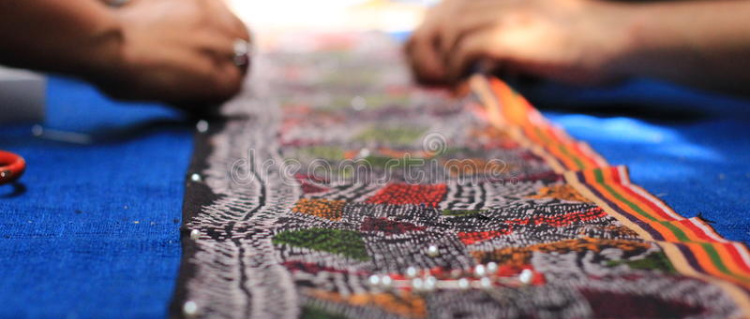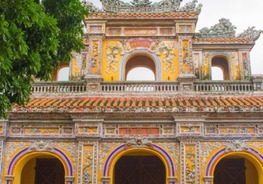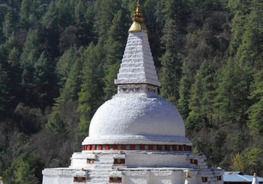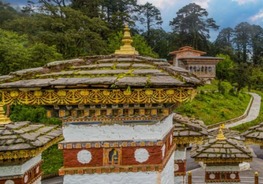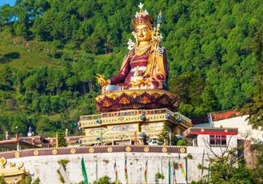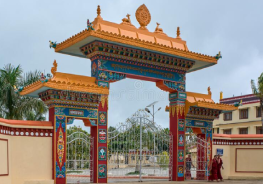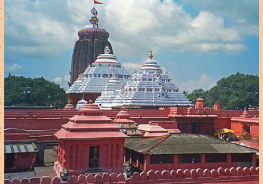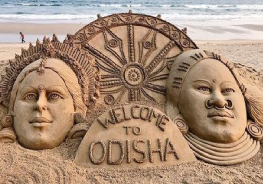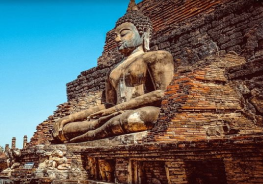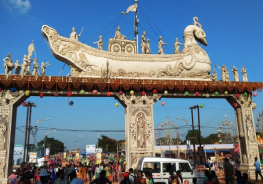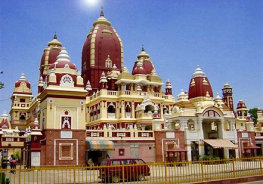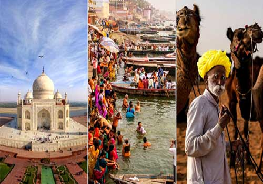- Day 1
Transfer to the hotel and check in after arrival at the Bhubaneswar Airport or Railway Station. After freshening up, visit Lingaraj Temple (dedicated to Harihara, a combination of Lord Shiv & Vishnu; this temple was built in the 11th century by JajatiKeshari, a Somavanshi king), Mukteswar Temple (This temple that became famous as "Gem Of Odisha Architecture") then return to the hotel and spend the night in Bhubaneswar.
- Day 2
After breakfast, check out of the hotel and go to Olasingh, a famous silk fabric weaving village. Take a stroll through the village and meet the local chief at the handloom factory. You can see the traditional tiger mask dance performed here as well. Visit the Mangalajodi Eco Village in the second half to observe the making of boats and fishing nets. Mangalozodi is renowned for its community-based tourism and for being a birder's paradise. The best illustration of ecology and natural habitat preservation is this. then register at the hotel. Stay the night in Gopalpur.
- Day 3
After breakfast, check out of the hotel and go to Padmanavpur, a village known for its cotton weaving. The traditional charkhas and handlooms in use in this village's homes are proof of this. The weaver families in this heritage crafts community claim that although weaving has been a source of income for more than 200 years, it took off during the Gandhian era of swadeshi and khadi. Then travel to Berhampur, the birthplace of the renowned Berhampur Patta Saree, which women adore for its exquisite quality and unusual patterns. These families' weavers may be found in the city's Bada Bazaar as well as in the villages of Bakra Nuapada and Pital in the Chikiti block of the Ganjam district. proceed to Bhubaneswar then check in to the hotel for a night stay at Bhubaneswar.
- Day 4
Visit the village of Gopalpur in the Jajpur district after breakfast. The production of Tussar fabrics made Gopalpur village renowned. It is situated in the Jajpur District of the Indian state of Odisha. In 2009, the Indian government awarded this craft the Geographical Indication label. Dhoti, joda, Shawl stole, scarves, and saris all share a connection with tussar textiles. Threading, spinning, and weaving are the three classic methods used in production. Females typically assist in unwinding the thread around the cocoons with their other hand while reeling the tussar threads while holding the 'natai' in their right hand. The weaver continuously coils the strands on the wooden "natal" while twisting the filament. Handwork is required for embellishments, either with additional weft or warp and a "bandha" pattern in hand. The fabric's worth is raised by the embellishments. Reeling machines are a different option. Traditionally, a spinning wheel is used to wind the thread around the chadaki to fill the bobbins (nali) for the weft (charkha). The wooden or Gandhi charkha has been replaced with a metal component. By interlocking shuttles to create foda Kumbha in the weft direction, or "cut shuttle technique," fabric is woven. The primary shuttle, which forms the main body of the fabric, interlocks with shuttles on both sides. The foda Kumbha design is duplicated for numerous products using the tie and die bandha process. After visiting the village, return to Bhubaneswar and spend the night there.
- Day 5
After breakfast, visit the Nuapatna textile town. This village is well-known for its TIE & DYE patterns, or "IKAT," which are widely used in Indian textiles. The Maniabandha Textile Village after that returned to the hotel and spent the night in Bhubaneswar.
- Day 6
Visit a Bantu textile community after breakfast, where the weavers solely produce the regional wrappers and napkins. Continue with Pipili, which is renowned for its applique work. The word "appliqué" is derived from the verb applique, which means "to put on." This technique has two variations: applique, in which a fabric shape is stitched over a base layer; and reverse appliqué, in which two layers of fabric are spread out, a shape is cut from the top layer, revealing the lower layer, and the two layers are then stitched together. The tradition of Lord Jagannath around the 12th century is where pipili appliqué technique got its start. The Gajapatis had previously made appliqué canopies and umbrellas for Jagannath's yearly Ratha Jatra.
- Accommodation in well appointed A/c room on Twin or Tripple sharing basis in hotels mentioned
- Transfers by A/C vehicle (delhi Railway Station/Airport )
- Welcome non-alcoholic drink on arrival
- Breakfast & dinner per night of stay
- One Full day sightseeing of Oidsha by A/C CAR / BUS
- Complimentary use of recreational facilities at Hotel
- All Applicable Taxes (Toll Tax, Luxury Tax, Green Tax Fuel Exp, Service and Driver Exp)
- Any Air Fare / Train Fare to/from delhi Airport/ delhi Rly Stn.
- Permit fees, Entry fees, Camera fees, Porterage, Insurance, Tips & Gratuity
- Any personal expenses, Mineral/soft/hard drinks
- Surcharges applicable during Festival, Peak Season & Special Events
- Any changes in the taxes levied by Govt.
- Extra usage of vehicle, Guide, and anything which is not mentioned in the inclusion
| Class | Economic | Standard | Deluxe | Superior |
|---|---|---|---|---|
| Cost Per Person | - | - | - | - |
| CHILD PER PAX (5-12 YEARS) | - | - | - | - |
|
Children below 6 years are complementary in parent’s room without extra bed. (Milk/Food for infant or children below 6 years is chargeable and direct payable at hotel.
Children between 6- 12 Years &Adults (Above 12 yrs.) would Cost extra according to Company’s Policy. |
||||
| NOTE: In case False Information (Fake Age) is conveyed to the agency by the customers, the agency possesses full right to extract the fair amount from the customers without any objection from external authorities. | ||||
- No refund of the tour package for delayed arrivals of the members for whatever reasons
- Cancellation before 48 hours of the package will be not charged, after 48 hours 20% of the tour package cost will be charged from the customers.
- On your booking of packages or tour if car or bus booked for rental and being cancelled the charges will not be refunded at any cost.
- 50% of payment will be taken as confirmation for tour package also for Car/Bus rental, either by Bank deposit or cash in hand.
- We are not responsible for any cost arising out of unexpected situations like landslide, road blocks, Bad weather, etc…
- All baggage’s and personal property are clients risk.
- Senior persons or kids or patients are advised to travel with all their pills directed by their doctors.
- To make your journey safe and happy, Alcohol is strictly prohibited.

